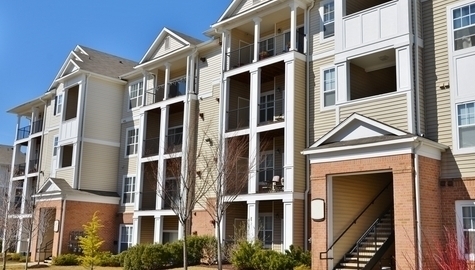Court Stops Homeowner Association from Banning Delinquent Unit Owners from Common Areas
In a recent opinion from the Maryland Court of Special Appeals, the justices imposed limits on the means by which the board of directors of a condominium complex could collect HOA fees. While the opinion was not published, meaning that the case cannot be relied upon as settled law in the future, the opinion offers a valuable perspective on the way courts might approach aggressive HOA fee collection in the future.
The defendant unit owners, the Roses, received notice in June of 2012 that, since they were delinquent in making payments toward maintenance of common areas, they would not be permitted to park in their assigned spots. Mrs. Rose later received a letter describing “the new policy regarding the parking rules of not being able to park if you allegedly owe money,” as well as an email stating that delinquent residents “will be subject to being towed at their expense.” The Roses were also prevented from using the pool for two summers, even when they were the guests of another, non-delinquent owner. The Roses filed suit against the condo complex, arguing that they had an ownership stake in these areas, and that being banned from using their parking spots or the common pools constituted a “taking” (i.e., robbing them of their right to use their property). The Roses succeeded at the trial court, having their right to use the parking spots and pool restored, and the condo complex appealed.
The declaration and bylaws binding each condo owner in the Rose’s complex stated that owners would have a fractional ownership interest in the “general common areas” in the complex, which included streets, sidewalks and parking areas. The declaration also stated that “each unit owner… shall have the right to use all of the recreational facilities for so long as same, including swimming pool and bath house, shall exist.” The declaration stated that all owners were required to pay toward common expenses by submitting their own 1/12th share each month to the Council of Unit owners. Where these monthly assessments weren’t made, the Council was permitted to file a lien against the delinquent unit, recorded with Anne Arundel County. The bylaws stated that the Board of Directors could collect on that lien by foreclosing on it, as a bank would on a delinquent mortgage, and could subsequently sue the owners for any remaining balance. However, the rules did not permit the Council or Board to ban owners from using general common areas when they failed to make their monthly assessments, and stated that changes to the bylaws required approval by 75% of unit owners. The bylaws prevented obstruction of common areas, but did grant the Board the authority to “regulate” parking in common areas, and to create and enforce rules “respecting the use, occupancy and maintenance” of the common areas.
On appeal, representatives for the condo complex argued that, since the bylaws gave the Board the right to make rules governing common areas, the new rules regarding towing the cars of delinquent owners were in fact authorized under the bylaws. They argued that barring delinquent owners wasn’t a “taking,” as they could restore their rights to use these areas by becoming current on their monthly assessments. Instead, they argued that these were only “reasonable and temporary use restriction[s].” The Court of Special Appeals did not agree. The court ruled that the Roses had a right as condo owners to use the common areas, which the Board could not limit without proper authority. Since the bylaws and declaration did not authorize this type of restriction, the Board could not, on its own, adopt a rule permitting these types of restrictions without a vote by the condo owners.
If you are a condo owner in Maryland facing a potential legal issue with your complex’s homeowners’ association, seek knowledgeable and experienced legal help from the Annapolis real estate and HOA law attorneys at the Evans Law by calling 410-626-6009.





